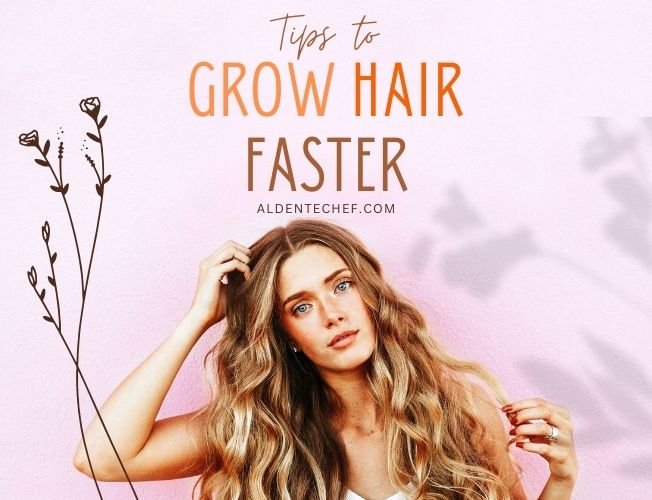How to Grow Your Hair Faster? The rate of hair growth varies from person to person. It may be slower for some people. Fortunately, it is possible to stimulate hair growth with the right methods and nutritional habits.
Hair growth products are generally nutritional supplements that contain vitamins and minerals that support hair health and stimulate hair growth. However, since everyone’s body structure is different, the effects of these vitamins vary from person to person.
The supplements should also have enough nutrients that have a positive effect on hair health to grow the hair faster.
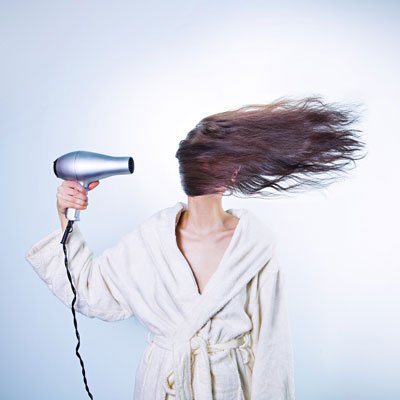
If it is difficult to obtain adequate amounts of essential nutrients through diet. So you may consider taking supplements that support hair growth under the supervision of a doctor. You should first determine the vitamin deficiencies in your body with an analysis. Because excess of vitamins and minerals is as bad as deficiency. Therefore, it is important to consult with a healthcare professional before using any supplements.
How to Grow Your Hair Faster? : Supplements
Top 6 Supplements for Hair Growth:
If you cannot replace the deficiencies in your body with changing your diet, using nutritional supplements may be a good option. Perhaps the most preferred and most practical method of hair growth is using supplements. Of course, you should add real nutrients including these supplements to your diet. Otherwise the deficiency will occur again over time when you run out of the supplement you have.
Let’s take a look at hair growth supplements you can use to have a healthy hair;
Biotin (Vitamin H)
Biotin is a type of B vitamin that promotes hair growth. It is an important vitamin for hair, skin and nail health. Foods such as eggs, almonds, hazelnuts, avocados and salmon are rich in biotin. Biotin supplements can be used to support hair growth. It strengthens the hair and contributes to its growth.
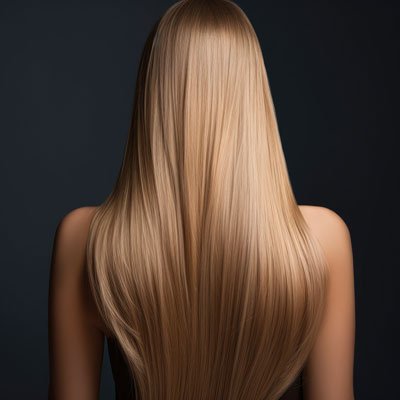
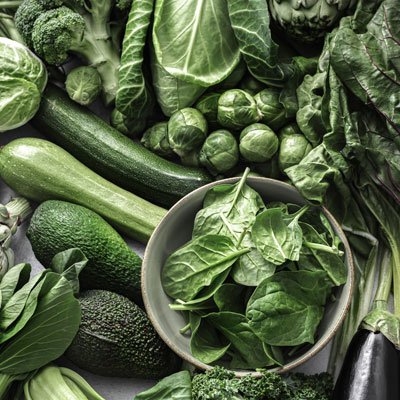
Iron
Iron deficiency can cause hair loss. Consuming iron-rich foods such as red meat, beans, lentils, broccoli, spinach and other dark green leafy vegetables supports hair health. People with iron deficiency anemia can also use iron supplements.
Consuming iron-rich foods together with foods containing vitamin C will increase the absorption of iron.
When taking iron supplements or eating iron-rich foods, make sure you do not consume tea along with them. Because the tannins in tea will reduce the absorption of iron. It would be more appropriate to drink your tea 2 hours before or after.
Zinc
Zinc plays an important role in keeping hair follicles healthy.
- Zinc is important for maintaining the health of hair follicles. It promotes hair growth by strengtening the roots from which hair grows.
- Zinc deficiency causes hair loss. Therefore, adequate zinc intake helps reduce hair loss.
- Zinc protects the health of the scalp and maintains a good environment for hair growth.
It is found in foods such as pumpkin seeds, red meat, seafood and yoghurt. Zinc supplements are used to stimulate hair growth and reduce hair loss.
Vitamin D
Vitamin D is important for the health of hair follicles. Natural vitamin D obtained from sunlight and supplements can be used.
Vitamin D is effective on hair growth and health as well as general body health. However, scientific research on this subject is still not completely clear. For this reason, vitamin D deficiency is not accepted as a factor that directly causes hair loss. However, vitamin D deficiency can indirectly lead to general health problems and deterioration. Vitamin D can contribute to hair health in the following ways:
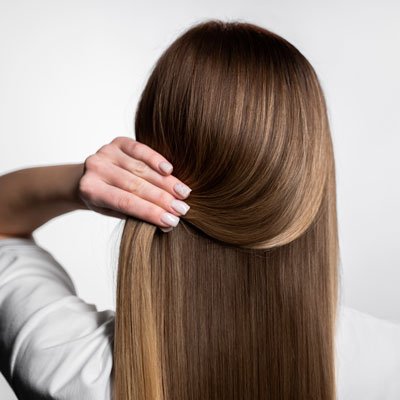
- Follicle Health: Vitamin D supports the health of hair follicles. Hair follicles are the root areas where hair grows.
- Anti-inflammatory Effect: Vitamin D has anti-inflammatory properties. Hair loss is sometimes associated with inflammatory conditions. Therefore, vitamin D contributes to hair health with its anti-inflammatory effects.
- Promoting Hair Growth: Vitamin D promotes hair growth. However, research on this subject is not yet fully clear.
To increase vitamin D intake, one should first be exposed to sunlight. It is also necessary to eat foods rich in vitamin D (fish oil, milk, eggs). If these methods are not sufficient, reinforcement can also be used.
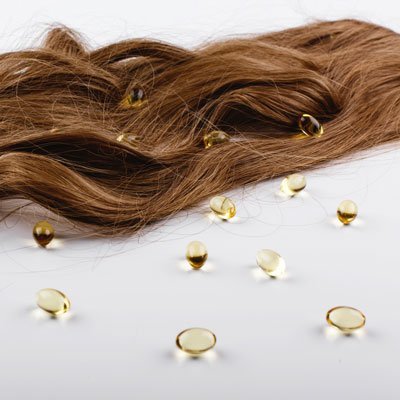
Omega-3
Omega-3 fatty acids are essential fatty acids for the body. In other words, the body cannot produce these fats on its own. So they must be obtained from outside through food.
Including foods containing omega-3 fatty acids, such as salmon, walnuts and flaxseed oil, in our daily diet helps moisturize the scalp. It also increases the shine of the hair.
The anti-inflammatory properties of omega-3 fatty acids provide a positive effect in reducing hair loss. Consuming foods rich in omega-3 fatty acids reduces inflammation on the scalp. Inflammatory conditions on the scalp cause hair loss and deterioration of hair health.
MSM (Methylsulfonylmethane)
MSM supplements containing organic sulfur contribute to the strengthening of hair follicles.
Methylsulfonylmethane (MSM) is an organic sulfur-containing compound. There is some research that it may positively affect hair health. The potential of MSM to promote hair growth is based on strengthening hair follicles. It increases the quality of hair strands and improving the health of the scalp.
MSM participates in the structure of sulfur in the collagen structure of the scalp. This way it contributes to the strengthening of hair. Additionally, MSM’s anti-inflammatory properties help keep the scalp healthy.
However, scientific evidence on MSM supporting hair growth is limited and more research is needed. It is important to consult with a healthcare professional before using any supplement. Especially if you have special circumstances such as pregnancy or another health condition.
We generally consider MSM supplements safe. However, you should keep in mind that there may be side effects or interactions.
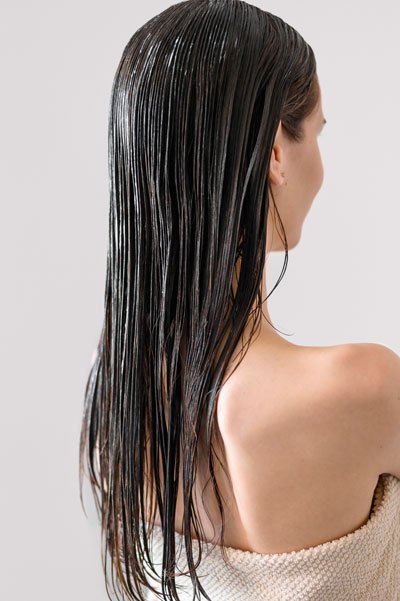
How to Grow Your Hair Faster? : Nutrients
Top 6 Food Groups for Hair Growth:
Healthy eating and changing some of your daily habits will also positively affect your hair. Among the hair growth methods, the easiest and most permanent method is to eat healthy.
The hair growth process generally depends on genetic factors, age, hormonal balances and nutritional habits. Here are the foods that grow hair fast:

High Protein Foods
Protein-rich foods such as fish, chicken, turkey, eggs, dairy products and legumes are the building blocks of hair. Because hair consists largely of protein.
If you want to have healthier and thicker hair and prevent hair loss, you should get enough protein in your daily diet. Consuming protein-rich foods will support hair growth.
Green Leafy Vegetables
Green leafy vegetables such as spinach, cabbage and broccoli are rich in iron and other vitamins.

Nuts & Seeds
Nuts and seeds such as walnuts, almonds, flaxseeds and chia seeds are rich in omega-3 fatty acids, zinc and other minerals. Protein is very critical in the hair growth process. Hair strands consist largely of a protein called keratin. Therefore, getting enough protein is vital for hair health. Protein-rich foods such as meat, chicken, fish, eggs, dairy products, nuts and seeds promote hair growth.
Fruits
Fruits rich in vitamin C (such as orange, strawberryi) support the health of the scalp.
Whole Grains
Whole grains such as whole wheat, oats and brown rice contribute to hair health because they are rich in B vitamins.
Water
Dehydration causes hair to dry out. Adequate daily water intake will help keep hair moisturized.
How to Grow Your Hair Faster? : Habits
Top 7 Habits for Fast Hair Growth:
A healthy lifestyle and correct habits, as well as a balanced diet, are among the hair growth methods. Your daily hair care habits significantly affect your hair health.
Regular Hair Cut: It is important to have regular hair cuts to prevent split ends and to support healthy hair growth. This helps your hair look fuller and more vibrant.
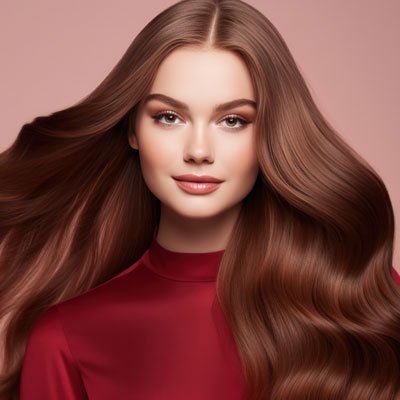
Avoid Hot Water: Hot water damages the hair strands and irritates the scalp. Be careful to use warm water when washing your hair. Also, avoid frequent use of hot tools such as hair dryers and straighteners.
Regular Hair Care: Taking regular care of your hair is also important on the way to long and healthy hair. Moisturize your hair by using shampoo and conditioner suitable for your hair type. You can deeply care for your hair by using hair masks or natural oils (for example, argan oil) once a week.
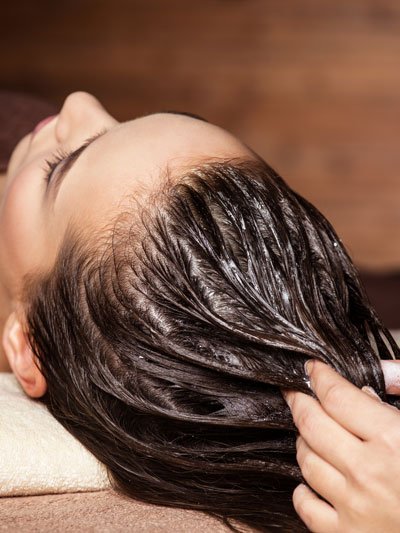
Scalp Massage: Regular massage of the scalp increases blood circulation and stimulates hair follicles. This also encourages hair growth.
Get Your Hair Cut Frequently: It will be useful to have your hair cut at regular intervals to prevent split ends and to ensure healthier hair growth.
Balanced Diet: Although hair health and quality often depends on genetic factors, proper nutrition plays an important role for healthy hair growth. Hair needs protein, vitamins, minerals and other nutrients. A balanced diet containing adequate vitamins, minerals and other nutrients supports healthy hair growth.
Avoid Stress: Stress can cause hair loss. It is helpful to use yoga, meditation or other relaxation techniques to relax and reduce stress.
You will go at your own pace.
It should not be forgotten that hair growth varies from individual to individual. Whether hair growth methods are vitamins or nutrients, their effects will vary from person to person. These suggestions will not be equally effective for everyone. If you still have problems with hair loss or growth even after following the recommendations above, you should seek help from a healthcare professional or dermatologist.
“What is a Ketogenic Diet? | The Ultimate Guide to Keto“ If you are curious, you can read the relevant article.
